|
Books Should Be Free Loyal Books Free Public Domain Audiobooks & eBook Downloads |
|
|
Books Should Be Free Loyal Books Free Public Domain Audiobooks & eBook Downloads |
|
Top Authors |
|---|
|
Book type:
Sort by:
|
By: Nella Larsen (1891-1964) | |
|---|---|
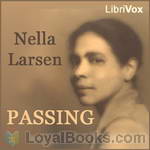 Passing
Passing
Nella Larsen, a writer of the Harlem Renaissance, wrote two brilliant novels that interrogated issues of gender and race. In Passing, her second novel published in 1929, she examines the troubled friendship between two mixed-race women who can pass as white. One, Irene Redfield, marries a black man and lives in Harlem, while the other, Clare Kendry, marries a bigoted white man. Clare re-enters Irene's life after an absence of many years, and stirs up painful questions about identity. (Introduction by Elizabeth Klett) | |
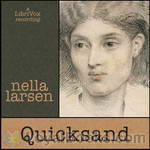 Quicksand
Quicksand
Quicksand is a 1928 novel by Nella Larsen, a writer of the Harlem Renaissance. It focuses on Helga Crane, a mixed-race woman who is a schoolteacher in the American south. As the novel opens, she suddenly decides to give up her teaching position and go north, back to her roots in Chicago. Helga's restless search for identity is semi-autobiographical, inspired by Larsen's own struggles to reconcile her mixed heritage with the racism of 1920s America. Although this novel was published after 1923, the copyright was never renewed and is therefore in the public domain. (Introduction by Elizabeth Klett) | |
By: Robert Millikan (1868-1953) | |
|---|---|
 On the Elementary Electrical Charge
On the Elementary Electrical Charge
The experiments herewith reported were undertaken with the view of introducing certain improvements into the oil-drop method of determining e and N and thus obtaining a higher accuracy than had before been possible in the evaluation of these most fundamental constants. From the Physical Review, Vol. II, No. 2 | |
By: Florence Nightingale (1820-1910) | |
|---|---|
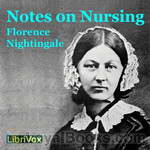 Notes on Nursing
Notes on Nursing
Notes on Nursing was published in 1859 and is a fascinating view into the theories underpinning the early development of modern nursing and public health reform by "the Lady with the Lamp", Florence Nightingale. Emphasising common sense and thought for the patient's care in many more ways than just administering physician-prescribed medicines, this is still a very relevant book for those interested in health or caring for the sick and infirm today.Summary by Cori Samuel. | |
By: Clifford D. Simak (1904-1988) | |
|---|---|
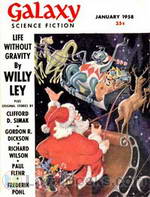 The World That Couldn't Be
The World That Couldn't Be
Layard was a curiosity to sociologists. The planet supported thriving tribes of natives but they were genderless. How could tribes form without families? But Gavin Duncan didn’t care. He had come to Layard to farm vua plants. Their berries cured mental illnesses and were one of the most expensive commodities in the galaxy. He was going to make his fortune if he could just keep the Cytha at bay, a big, dumb animal that could munch through 10 rows of vua in a night. Despite native superstitions he was going to have to hunt and kill the pest if he was to protect his crop... | |
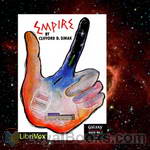 Empire
Empire
In a future time, the solar system is powered by one energy source, controlled by one huge organisation, which has plans to use this control to dominate the planets. Unknown to them, a couple of maverick scientists accidentally develop a completely new form of energy supply and threaten the corporation's monopoly. Naturally, the corporation can't allow this to happen... A stunning story about the manipulation of pure energy, climaxing in interstellar conflict. | |
By: Clifford Simak (1904-1988) | |
|---|---|
 Hellhounds of the Cosmos
Hellhounds of the Cosmos
From Astounding Stories of 1932. Earth is being attacked by horrible black monsters that appear from nowhere and destroy and kill everything and everyone in their paths. Nothing affects them, nothing stops them; they are impervious to all weapons. Earth is doomed. But there is one hope and it rests on the shoulders of 98 brave men. Can they do it? can they find a way of retaliating? Listen and find out. | |
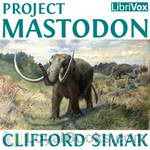 Project Mastodon
Project Mastodon
Clifford Simak deals with the implications of time travel in his own unique way in this story. What if a group of guys did it on their own, without any help from government or industry? On a shoestring,so to speak? Would anyone believe them? What would you do if you could go back 150,000 years to a time when mastodons and saber toothed tigers roamed North America? And what happens when they run out of money? All these questions are explored in the usual humorous, wry Simak way in this story. | |
By: Isaac Newton (1642-1727) | |
|---|---|
 Opticks
Opticks
The famous physicist Sir Isaac Newton lectured on optics from 1670 - 1672. He worked on the refraction of light into colored beams using prisms and discovered chromatic aberration. He also postulated the corpuscular form of light and an ether to transmit forces between the corpuscles. His "Opticks", first published 1704 contains his postulates about the topic. This is the fourth edition in English, from 1730, which Newton corrected from the third edition before his death. | |
By: Thomas R. Malthus (1766-1834) | |
|---|---|
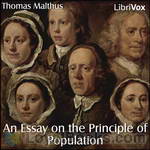 An Essay on the Principle of Population
An Essay on the Principle of Population
The power of population is indefinitely greater than the power in the earth to produce subsistence for man. Population, when unchecked, increases in a geometrical ratio. Subsistence increases only in an arithmetical ratio. A slight acquaintance with numbers will show the immensity of the first power in comparison with the second (Malthus). | |
By: James Whitcomb Riley (1849-1916) | |
|---|---|
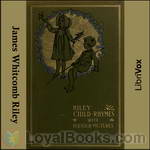 Selected Riley Child-Rhymes
Selected Riley Child-Rhymes
Riley was an American writer known as the “Hoosier poet”, and made a start writing newspaper verse in Hoosier dialect for the Indianapolis Journal in 1875. His favorite authors were Burns and Dickens. This collection of poems is a romanticized and mostly boy-centered paean to a 19th century rural American owning-class childhood. I’ve included the pieces I did because they’re the ones I most enjoyed when I read a copy of the collection handed down from my great-grandfather. | |
 Scrawl
Scrawl
James Whitcomb Riley was an American writer, poet, and best selling author, born in the town of Greenfield, Indiana. During his lifetime he was known as the "Hoosier Poet" and "Children's Poet" for his dialect works and his children's poetry respectively. His poems tended to be humorous or sentimental, and of the approximately one thousand poems that Riley authored, the majority are in dialect. | |
 In The Dark
In The Dark
James Whitcomb Riley was an American writer, poet, and best-selling author. During his lifetime he was known as the "Hoosier Poet" and "Children's Poet" for his dialect works and his children's poetry respectively. His poems tended to be humorous or sentimental, and of the approximately one thousand poems that Riley authored, the majority are in dialect. Riley began his career writing verses as a sign maker and submitting poetry to newspapers. Thanks in part to an endorsement from poet Henry Wadsworth Longfellow, he eventually earned successive jobs at Indiana newspaper publishers during the latter 1870s... | |
By: Sarah Elizabeth Harper Monmouth (1829-1887) | |
|---|---|
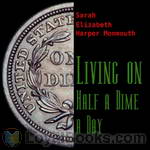 Living on Half a Dime a Day
Living on Half a Dime a Day
How to live on 5 cents a day! How to survive financial ruin without losing your house! How to keep to a bare bones budget and still have money left over to buy books! Tough questions! They were tough questions even in the 1870’s, when Sarah Elizabeth Harper Monmouth penned her quirky memoir, the subtitle of which was “How a Lady, Having Lost a Sufficient Income from Government Bonds by Misplaced Confidence, Reduced to a Little Homestead Whose Entire Income is But .00 per Annum, Resolved to Hold It, Incurring no Debts and Live Within it... | |
By: Sir Hall Caine | |
|---|---|
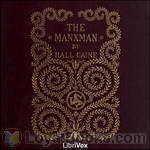 The Manxman
The Manxman
Sir Thomas Henry Hall Caine, CH, KBE (14 May 1853 – 31 August 1931), usually known as Hall Caine, was a British author. He is best known as a novelist and playright of the late Victorian and the Edwardian eras. In his time he was exceedingly popular and at the peak of his success and his novels outsold those of his contemporaries. Many of his novels were also made into films. His novels were primarily romantic in nature, involving the love triangle, but they did also address some of the more serious political and social issues of the day... | |
By: Joseph Sheridan LeFanu (1814-1873) | |
|---|---|
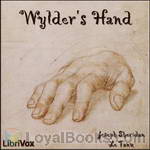 Wylder's Hand
Wylder's Hand
The marriage of Mark Wylder and Dorkas Brenden is supposed to end a history of arguments between the two families. However, both people involved do not seem to like the idea. Before the wedding, Mark disappears. But to where? And how will the people around him react to his disappearance? | |
 The Evil Guest
The Evil Guest
Le Fanu’s inimitable style continues with The Evil Guest, a murder mystery fraught with dark imagery and mysterious characters. An unwanted guest visiting a dreary and isolated home is murdered; the thriller leads the reader down countless ‘dead’ ends before revealing the identity of the guilty party. (Introduction by Cathy Barratt) | |
 The Room in the Dragon Volant
The Room in the Dragon Volant
J. Sheridan LeFanu's Gothic mystery novel is narrated by Richard Beckett, a young Englishman abroad in Napoleonic-era France. He falls instantly in love with a mysterious and imperiled Countess, whom he glimpses momentarily behind her black veil. In order to be near her, he takes a room in the Dragon Volant (the Flying Dragon), a haunted inn that has been the site of mysterious disappearances. | |
By: Charles Alexander Eastman (1858-1939) | |
|---|---|
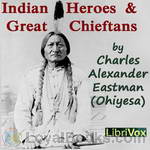 Indian Heroes and Great Chieftans
Indian Heroes and Great Chieftans
EVERY age, every race, has its leaders and heroes. There were over sixty distinct tribes of Indians on this continent, each of which boasted its notable men. The names and deeds of some of these men will live in American history, yet in the true sense they are unknown, because misunderstood. I should like to present some of the greatest chiefs of modern times in the light of the native character and ideals, believing that the American people will gladly do them tardy justice. | |
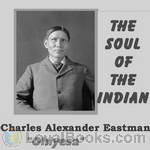 The Soul of the Indian
The Soul of the Indian
"We also have a religion which was given to our forefathers, and has been handed down to us their children. It teaches us to be thankful, to be united, and to love one another! We never quarrel about religion." | |
By: Charlotte Turner Smith (1749-1806) | |
|---|---|
 Elegiac Sonnets and Other Poems
Elegiac Sonnets and Other Poems
Charlotte Turner Smith (1749 – 1806) was an English poet and novelist. She initiated a revival of the English sonnet, helped establish the conventions of Gothic fiction, and wrote political novels of sensibility. It was in 1784, in debtor’s prison with her husband Benjamin, that she wrote and published her first work, Elegiac Sonnets. The work achieved instant success, allowing Charlotte to pay for their release from prison. Smith’s sonnets helped initiate a revival of the form and granted an aura of respectability to her later novels... | |
By: William Harmon Norton (1856-1944) | |
|---|---|
 The Elements of Geology
The Elements of Geology
Geology is a science of such rapid growth that no apology is expected when from time to time a new text-book is added to those already in the field. The present work, however, is the outcome of the need of a text-book of very simple outline, in which causes and their consequences should be knit together as closely as possible,—a need long felt by the author in his teaching, and perhaps by other teachers also. The author has ventured, therefore, to depart from the common usage which subdivides... | |
By: William Westgarth (1815-1889) | |
|---|---|
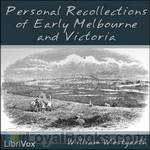 Personal Recollections of Early Melbourne and Victoria
Personal Recollections of Early Melbourne and Victoria
Son of John Westgarth, surveyor-general of customs for Scotland, was born at Edinburgh, in June 1815. He was educated at the high schools at Leith and Edinburgh, and at Dr Bruce’s school at Newcastle-on-Tyne. He then entered the office of G. Young and Company of Leith, who were engaged in the Australian trade, and realizing the possibilities of the new land, decided to emigrate to Australia. He arrived in Melbourne, then a town of three or four thousand inhabitants, in December 1840.When the new colony was constituted Westgarth headed the poll for Melbourne at the election for the legislative council... | |
By: Fritz Leiber (1910-1992) | |
|---|---|
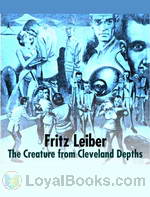 The Creature from Cleveland Depths
The Creature from Cleveland Depths
“The Creature from Cleveland Depths” also known as “The Lone Wolf” tells the story of a writer and his wife who refuse to move below-ground after the cold-war gets hot. The underground society discovers a decline in their ability to creatively innovate, and must consult with surface dwellers to develop products that satiate the needs of a people living like moles. But the latest product to result from this alliance, “The Tickler” has frightening implications that only our heroes seem to notice. – This story appeared in the December, 1962 issue of “Galaxy” magazine. | |
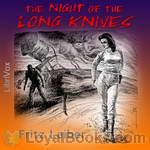 The Night of the Long Knives
The Night of the Long Knives
"I was one hundred miles from Nowhere—and I mean that literally—when I spotted this girl out of the corner of my eye. I'd been keeping an extra lookout because I still expected the other undead bugger left over from the murder party at Nowhere to be stalking me." In a Post apocalyptic world, the few people left must be strong. And must not hesitate to kill. Of course, killing another Deathlander was one of the chief pleasures and urges of all the solitary wanders in this vast wasteland. Kill and kill again. But this other was a girl and that brought up the second great urge: sex. Which was it to be today? Perhaps both? | |
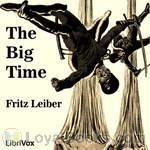 The Big Time
The Big Time
A classic locked room mystery, in a not-so-classic setting. (Intro by Karen Savage) | |
 No Great Magic
No Great Magic
They were a traveling group of Shakespearean players; perfectly harmless, right? Wrong. For one thing, why did they have spacemen costumes in their wardrobes, right next to caveman ones? Why was the girl in charge of backstage suffering from amnesia and agoraphobia? No Great Magic is needed to perform the plays they put on, but sometimes great science. No matter where, or when. | |
 Three Science Fiction Stories by Fritz Leiber
Three Science Fiction Stories by Fritz Leiber
The Moon is Green, Bread Overhead and What's He Doing In There?! Three of the best known and loved Science Fiction short stories by the wonderful Fritz Lieber. Always tongue in cheek, and always with a funny twist, Leiber deftly shows how humans will adapt to or mess up the future. In ways that only humans can. | |
By: Thomas Archer | |
|---|---|
 Miss Grantley's Girls, and the Stories She Told Them
Miss Grantley's Girls, and the Stories She Told Them
The author Thomas Archer lived 1830 – 1893; he wrote several juvenile stories, and this book: Miss Grantley’s Girls – And the Stories She Told Them, was published in 1886. It is a book in 7 chapters. Miss Grantley is a teacher and works as a governess, and she after some coaxing tells somewhat romantic stories to “her” girls. In the first chapter it says: “There was nothing romantic in Miss Grantley’s appearance, and yet she was the sort of person that you could not help looking at again and again if you once saw her... | |
By: Captain Rees Howell Gronow (1794-1865) | |
|---|---|
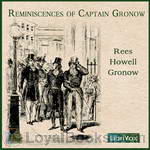 Reminiscences of Captain Gronow
Reminiscences of Captain Gronow
A collection of memoirs about the Peninsular War, the Battle of Waterloo, and society and personalities of Regency London and 19th century Paris, by a sometime Grenadier Guards officer, unsuccessful parliamentarian, and dandy. Gronow displays social attitudes of the day which would now be regarded as unacceptable, but is a clever raconteur who brings to life both the horrors of war and the gaiety of high society. | |
By: Charles Dudley Warner (1829-1900) | |
|---|---|
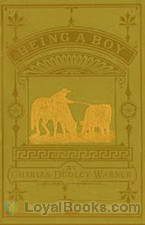 Being a Boy
Being a Boy
Warner's thoughtful and often humorous memoir of his life as a young farm-boy in Charlemont, Massachusetts. (Introduction by Mark Penfold) | |
 Summer in a Garden and Calvin, A Study of Character
Summer in a Garden and Calvin, A Study of Character
This is Warner's contemplative and humorous account of the wondrous and mysterious workings of a garden he tended for 19 weeks. After this is a essay of remembrance for Warner's beloved cat, Calvin. | |